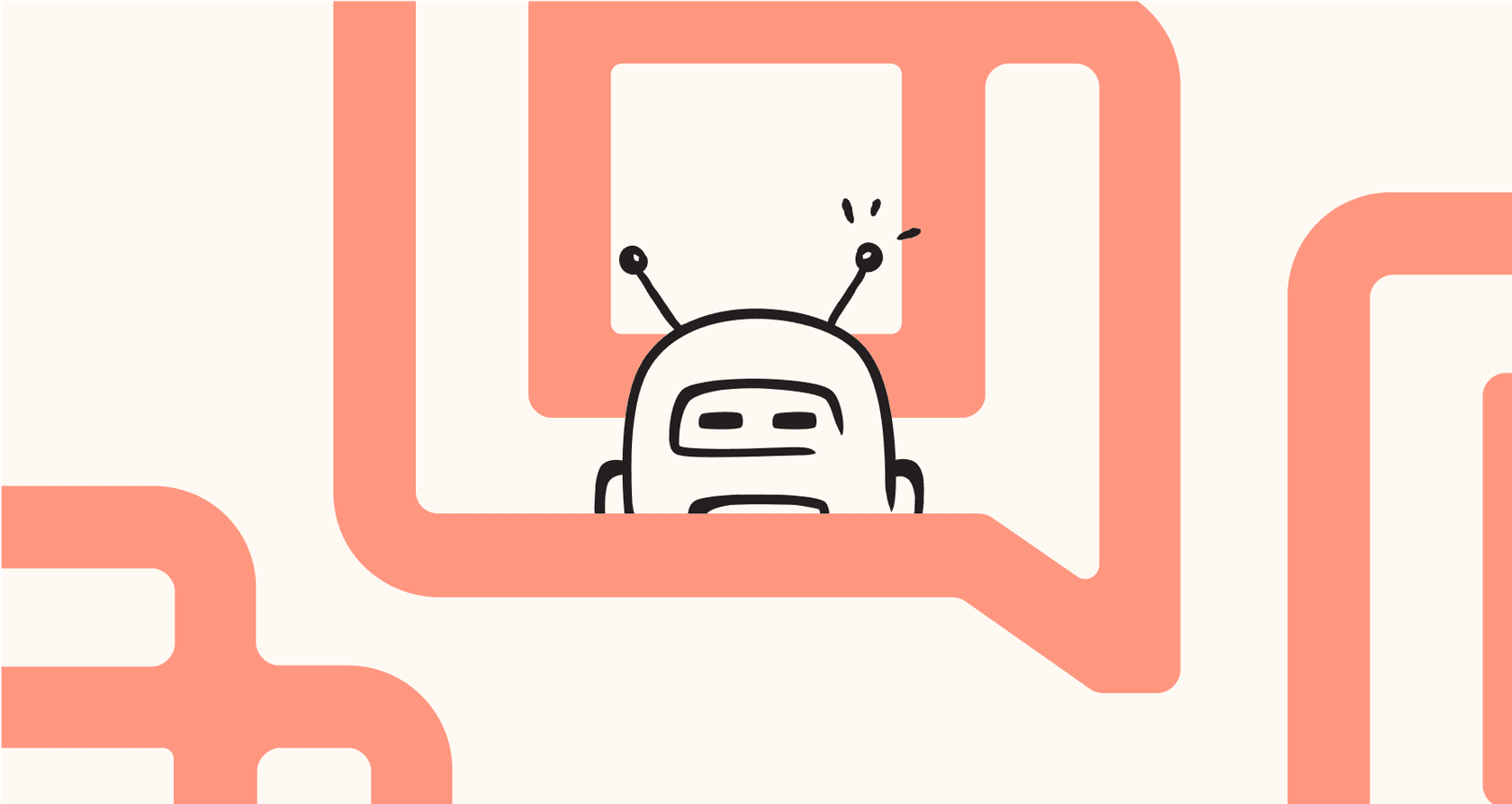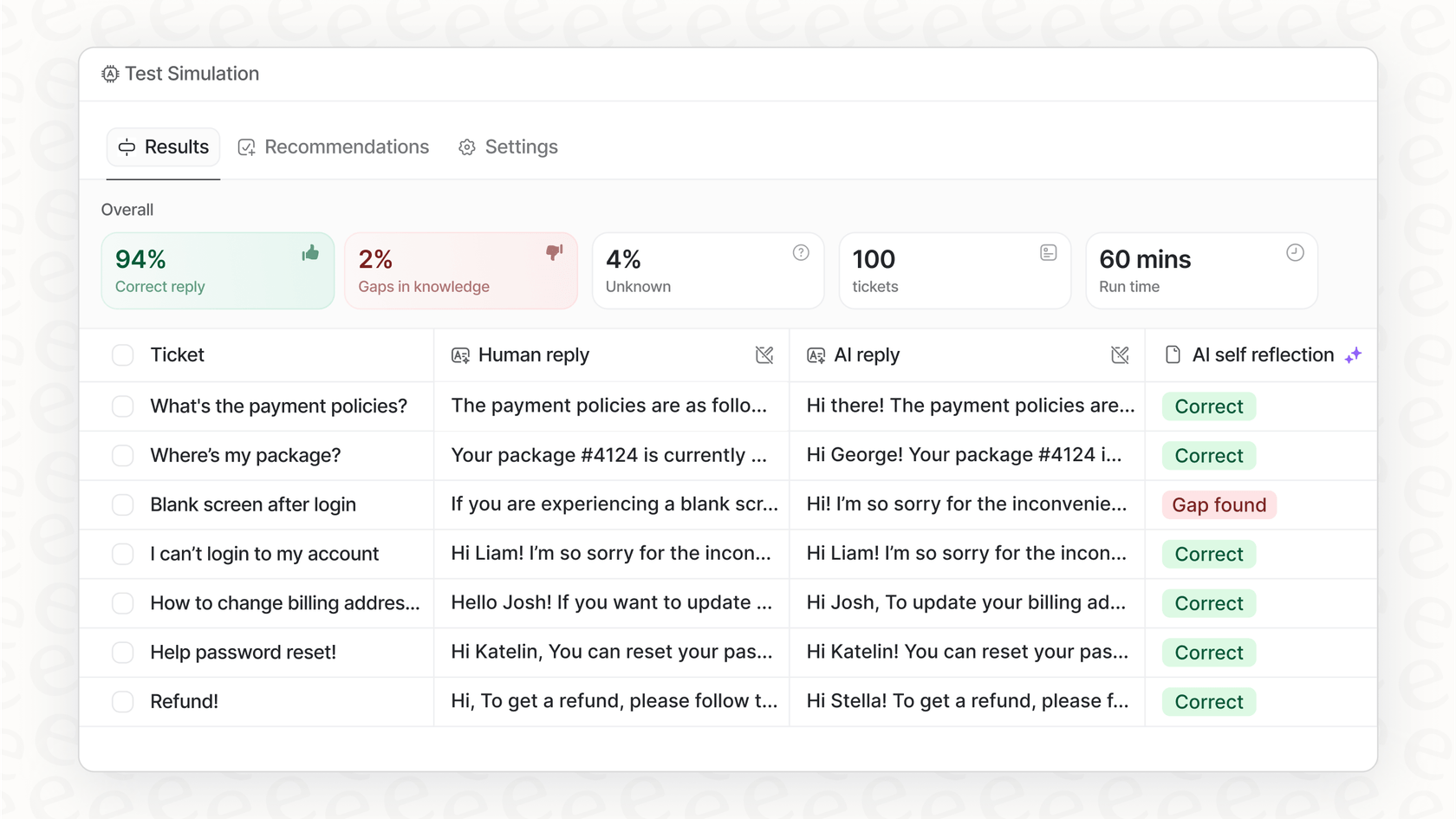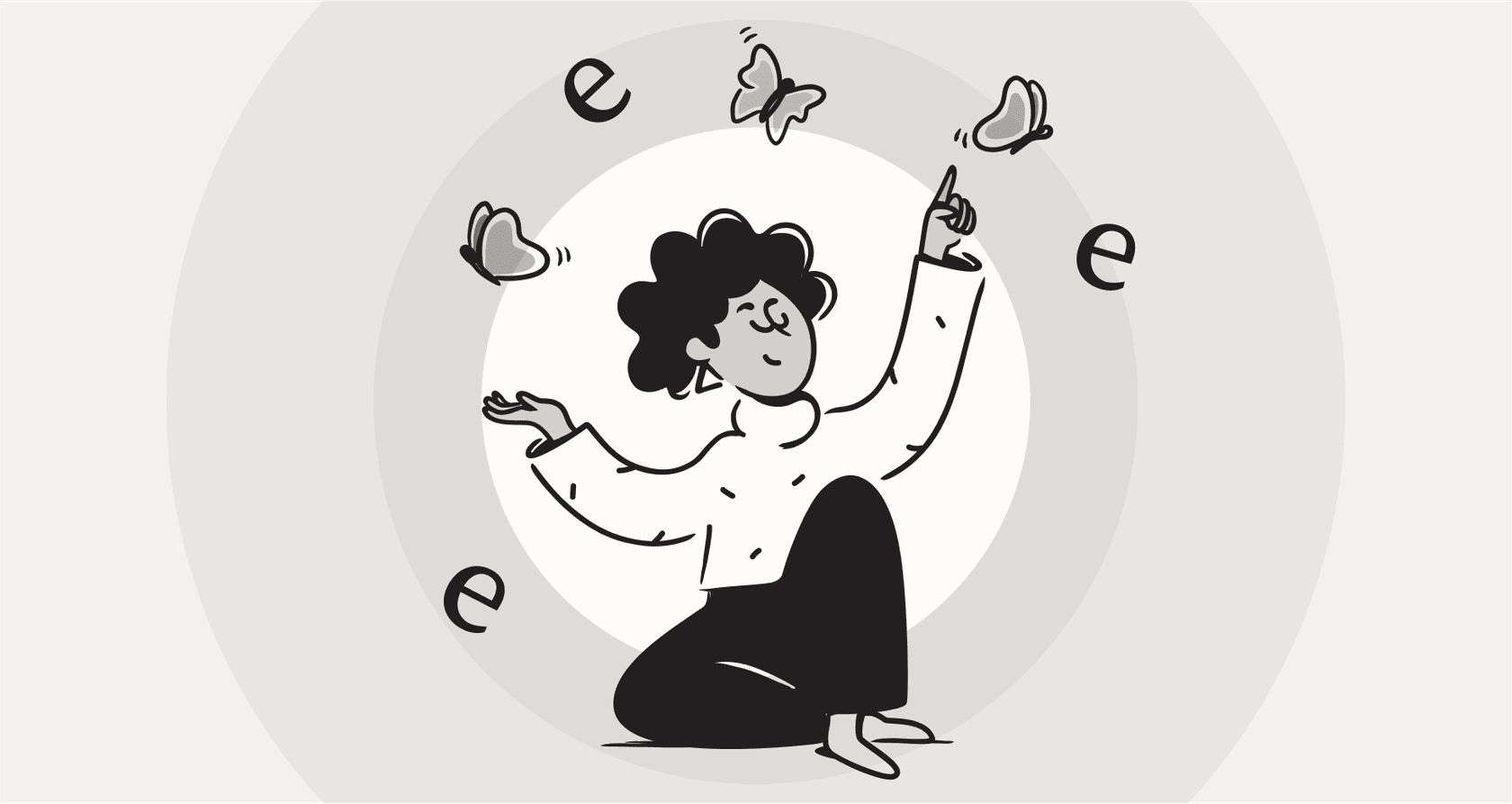A complete guide to PerfectBot pricing in 2025: What to expect

Kenneth Pangan
Last edited September 22, 2025

Picking an AI support agent is a huge deal, and let’s be honest, the pricing is usually where things get messy. A lot of tools look affordable upfront, but then hidden costs and confusing billing models can turn a smart investment into a budget nightmare.
PerfectBot is a popular name in the e-commerce world, especially for stores using Gorgias. But its per-conversation pricing model has a few catches you should know about, particularly when it comes to budgeting and scaling. This guide will give you a straight-up breakdown of the real PerfectBot pricing, point out its limitations, and introduce a more predictable and flexible alternative for growing businesses.
What is PerfectBot?
PerfectBot is an AI agent built to work hand-in-glove with the Gorgias help desk, which is why you see it so often with Shopify stores. Its whole job is to automate answers to customer questions that pop up in chat and email, all without leaving the Gorgias platform.
It learns from your existing support material, like old Gorgias tickets, help center articles, and Shopify data. The goal is to handle 50-70% of the common questions about order status, return policies, and the like. It basically acts like another agent on your team, working right inside Gorgias.
While that tight integration is handy for teams all-in on Gorgias, it’s also a major drawback. Its heavy reliance on Gorgias means it’s a no-go for anyone using a different help desk or for teams that want a tool that can grow and adapt with them.
A complete breakdown of PerfectBot pricing plans
PerfectBot’s pricing can throw you for a loop if you’re used to the typical per-seat pricing that most software uses. Instead of paying for each human on your team, your bill is tied directly to how much the bot does.
The per-conversation model of PerfectBot pricing
PerfectBot’s cost isn’t based on how many people use it, but on the number of "billable conversations" it handles every month. According to their help center, a billable conversation is any chat where the AI sends at least one message. Sounds simple, right? But there’s a tiny detail in the fine print that can make your costs add up fast.
A new conversation is logged if a customer replies to the same thread after just 24 hours of silence. So, that one ticket from a customer who takes a day to reply? That could end up costing you twice, even though it’s the same issue. A single support ticket could easily turn into two or three billable conversations, inflating your bill without warning.
PerfectBot pricing: Monthly plans and overage fees
PerfectBot has a few tiered plans based on how many conversations you think you’ll need. As soon as you cross your plan’s monthly limit, you start paying an overage fee of $0.20 for every extra conversation.
Here’s a look at their plans, based on their pricing page:
| Plan | Monthly Price | Included Conversations | Overage Fee per Conversation |
|---|---|---|---|
| Grow | $99 | 1,000 | $0.20 |
| Expand | $199 | 2,000 | $0.20 |
| Large | $299 | 3,000 | $0.20 |
| Extra Large | $499 | 5,000 | $0.20 |
This structure means your monthly support costs are a direct reflection of your ticket volume. That might be fine during a slow month, but it creates a huge headache for budgeting when business picks up.
The hidden costs and limitations of the PerfectBot pricing model
While PerfectBot’s plans seem clear enough, the per-conversation model brings a lot of unpredictability and a few limitations that you might not notice at first.
Why the per-conversation PerfectBot pricing is unpredictable
The biggest problem with a per-conversation model is that your costs can shoot up out of nowhere. Imagine you run a killer Black Friday sale and your ticket volume triples overnight. With PerfectBot, your automation bill also triples. You’re essentially getting penalized for having a successful campaign, and a great marketing push shouldn’t leave you worried about a massive support bill.
This makes it almost impossible to forecast your budget with any real confidence. You’re left guessing what your costs will look like from one month to the next, which is a tough spot for any business trying to scale. A fixed-cost model, on the other hand, gives you certainty. You know exactly what you’re paying every month, whether you handle one hundred tickets or ten thousand.
A narrow focus on Gorgias and Shopify
We touched on this already, but it’s a big enough deal to mention again. PerfectBot is pretty much built for the Gorgias and Shopify ecosystem. If your company uses another help desk like Zendesk, Freshdesk, or Intercom, PerfectBot isn’t even on the table.
And more importantly, today’s support questions aren’t just answered with what’s in your help desk. What if the solution to a customer’s problem is buried in an internal wiki on Confluence or a spec sheet in Google Docs? PerfectBot can’t get to it. This boxes your team into a limited set of tools and makes it tough to change platforms as your business grows. You need an AI that can pull answers from everywhere, not just one or two places.
Limited control and the "fully assisted" setup myth
PerfectBot talks a lot about "fully assisted onboarding" and a "dedicated success manager." While that sounds helpful, it usually means the platform isn’t something you can justpick up and run with. Relying on their team to get you started puts you on their schedule, which can slow down the whole process and delay seeing any results.
Modern AI tools should let you get started on your own. Platforms like eesel AI let you sign up and get going in minutes, not months, without ever having to sit through a required sales demo. You should be in charge of your own timeline.
A better alternative: Predictable pricing and total control with eesel AI
If the unpredictability and tight restrictions of PerfectBot’s model have you hesitating, you’re not the only one. The good news is there’s a much better way to handle AI support automation.
Transparent pricing without surprises
The pricing model for eesel AI is all about being predictable. It uses fixed monthly plans based on different tiers of interactions, so you never get slammed with surprise per-conversation fees. And an "interaction" isn’t just a reply, it can be an AI response or a helpful AI action, like automatically tagging and routing a ticket.
 This screenshot of eesel AI's pricing page highlights the predictable, fixed-cost plans that contrast with the variable PerfectBot pricing model.
This screenshot of eesel AI's pricing page highlights the predictable, fixed-cost plans that contrast with the variable PerfectBot pricing model.The benefit here is simple: your bill stays the same, no matter how many tickets you resolve. This means you can actually budget for it and easily figure out your return on investment.
Pro tip:
With a platform like eesel AI, you can scale up your support during busy seasons with confidence, without having to worry that your costs will spiral out of control.
Go beyond the help desk to unify all your knowledge
Here’s where eesel AI really stands out: it can connect to over 100 different places where your company knowledge lives. It doesn’t just learn from your help desk. It can pull information from internal wikis in Confluence, documents in Google Docs, conversations in Slack, and so much more.
 This image displays the wide array of integrations eesel AI supports, showing its ability to connect to knowledge sources beyond just the help desk.
This image displays the wide array of integrations eesel AI supports, showing its ability to connect to knowledge sources beyond just the help desk.This creates a genuinely smart AI that can answer a much bigger range of questions with way more accuracy. That kind of flexibility is a must-have for businesses that want a single source of truth for both their internal teams and their customers.
Test with confidence using powerful simulation
One of the coolest features of eesel AI is its simulation mode. It’s like a dress rehearsal for your AI. Before it ever talks to a real customer, you can test it on thousands of your own past tickets. This shows you exactly how it will perform, gives you an accurate idea of your resolution rate, and helps you spot any gaps in your knowledge base, all in a completely safe environment.
 This screenshot demonstrates eesel AI's simulation mode, which allows you to test the AI's performance on past tickets before going live.
This screenshot demonstrates eesel AI's simulation mode, which allows you to test the AI's performance on past tickets before going live.That’s a huge difference from the uncertainty of launching a tool like PerfectBot, where you might only find its weak spots after it’s already live and interacting with your customers. With simulation, you can go live feeling confident.
PerfectBot pricing: Choose predictability for long-term growth
For teams that live and breathe in the Gorgias ecosystem, PerfectBot can be a decent starting point. But its per-conversation PerfectBot pricing model creates a lot of financial risk and makes budgeting a guessing game. Add its narrow focus and lack of a true self-serve option, and it becomes pretty clear it might not be the best choice for ambitious, growing businesses.
Companies that want to scale without headaches need a platform with straightforward pricing, tons of integrations, and powerful, risk-free testing. This is where eesel AI really shines, giving you full control over your automation with predictable costs that support your growth instead of penalizing it.
Ready to leave unpredictable pricing behind? Sign up for a free trial of eesel AI or book a demo to see how a modern AI agent can really change your support game.
Frequently asked questions
PerfectBot uses a per-conversation model, meaning costs fluctuate directly with your monthly ticket volume. This can lead to unexpected spikes in your bill due to overage fees during busy periods, making accurate budget forecasting challenging.
A billable conversation is logged any time the AI sends at least one message. Crucially, if a customer replies to the same thread after 24 hours of inactivity, it counts as a new billable conversation, potentially increasing costs for a single support issue.
PerfectBot plans include a fixed number of conversations, but once this limit is exceeded, an additional overage fee of $0.20 is charged for every extra conversation. This can lead to significantly higher and unexpected monthly bills during periods of high customer interaction.
During high-volume periods like a Black Friday sale, your support ticket volume can drastically increase. With PerfectBot pricing tied to conversations, your automation bill will similarly surge, effectively penalizing a successful marketing campaign with inflated support costs.
While not a direct pricing component, PerfectBot’s architecture is heavily reliant on Gorgias and Shopify. This narrow focus means the perceived value and cost-effectiveness of PerfectBot pricing are largely confined to businesses operating exclusively within this ecosystem, limiting flexibility for others.
PerfectBot’s per-conversation model offers less predictability compared to alternatives like eesel AI, which feature fixed monthly plans based on interaction tiers. This allows businesses to maintain a consistent budget without worrying about surprise overage fees regardless of ticket volume.





